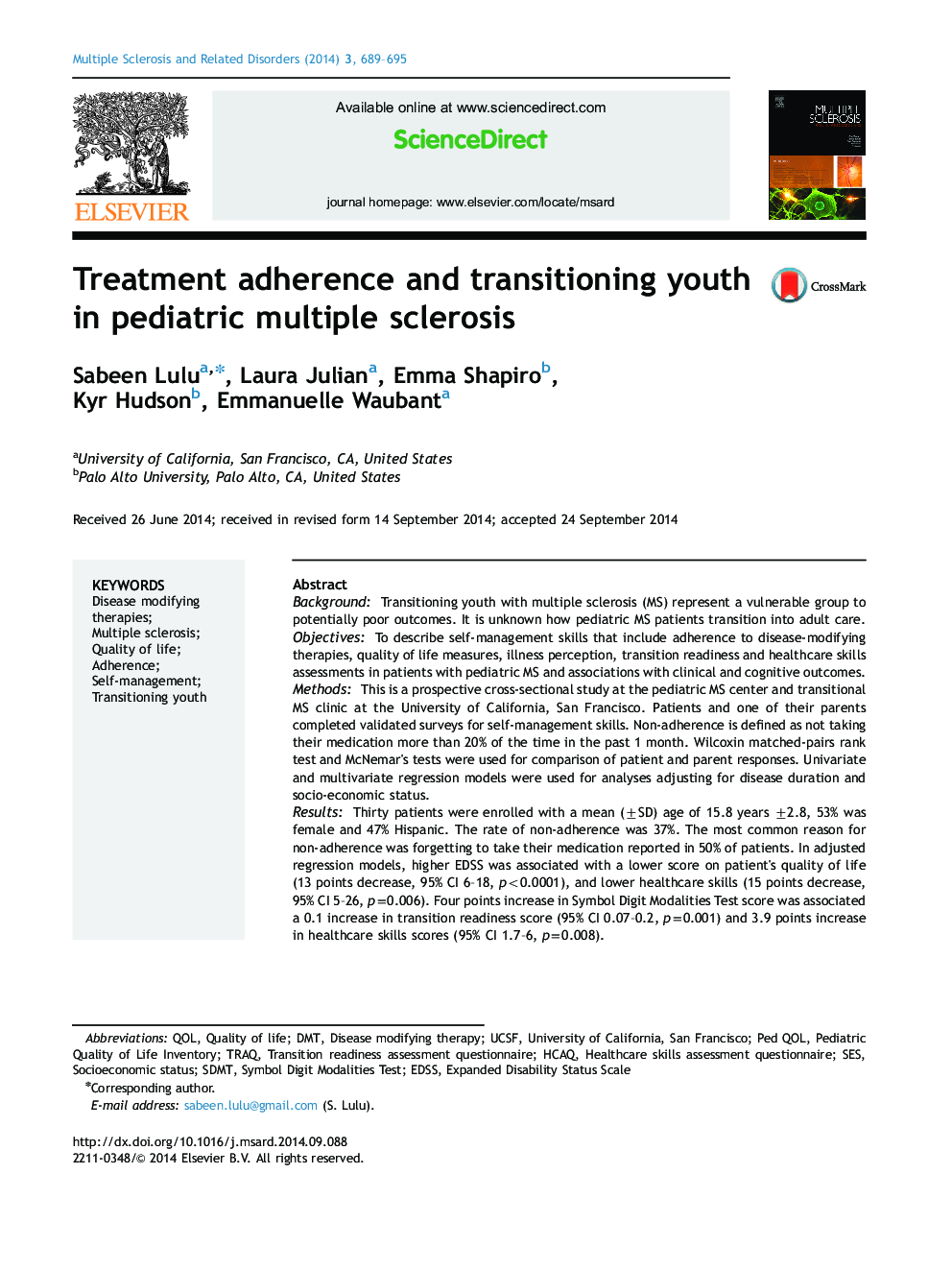| کد مقاله | کد نشریه | سال انتشار | مقاله انگلیسی | نسخه تمام متن |
|---|---|---|---|---|
| 5912394 | 1161441 | 2014 | 7 صفحه PDF | دانلود رایگان |
- Recognize that pediatric MS patients transitioning into adult care are a vulnerable group of patients.
- Non-adherence was reported in 37% of patients versus 30% of parents of teenagers with MS.
- Patients reported the most common cause for non-adherence as forgetting to take their medication (reported in 50% of patients versus 33% of parents).
- Young patients with higher disability and worse cognitive functioning may be the ones with more difficulty transitioning to adult care.
- Some discrepancies occur between parent and patient reports of non-adherence and other self-management skills.
BackgroundTransitioning youth with multiple sclerosis (MS) represent a vulnerable group to potentially poor outcomes. It is unknown how pediatric MS patients transition into adult care.ObjectivesTo describe self-management skills that include adherence to disease-modifying therapies, quality of life measures, illness perception, transition readiness and healthcare skills assessments in patients with pediatric MS and associations with clinical and cognitive outcomes.MethodsThis is a prospective cross-sectional study at the pediatric MS center and transitional MS clinic at the University of California, San Francisco. Patients and one of their parents completed validated surveys for self-management skills. Non-adherence is defined as not taking their medication more than 20% of the time in the past 1 month. Wilcoxin matched-pairs rank test and McNemar׳s tests were used for comparison of patient and parent responses. Univariate and multivariate regression models were used for analyses adjusting for disease duration and socio-economic status.ResultsThirty patients were enrolled with a mean (±SD) age of 15.8 years ±2.8, 53% was female and 47% Hispanic. The rate of non-adherence was 37%. The most common reason for non-adherence was forgetting to take their medication reported in 50% of patients. In adjusted regression models, higher EDSS was associated with a lower score on patient׳s quality of life (13 points decrease, 95% CI 6-18, p<0.0001), and lower healthcare skills (15 points decrease, 95% CI 5-26, p=0.006). Four points increase in Symbol Digit Modalities Test score was associated a 0.1 increase in transition readiness score (95% CI 0.07-0.2, p=0.001) and 3.9 points increase in healthcare skills scores (95% CI 1.7-6, p=0.008).ConclusionsIt is important to recognize clinical and cognitive status of pediatric MS patients as these may be critical in their ability to transition to adult care.
Journal: Multiple Sclerosis and Related Disorders - Volume 3, Issue 6, November 2014, Pages 689-695
